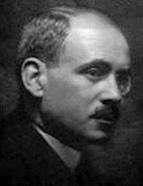

However, this discourse sacrificed the people to the “direction” of the “social authorities” and subjected them to a rigid corporative hierarchy which in effect relegated to the shadows a whole mass of anonymous dwarves who had to make a pact with the “giants” of the nation. The idea that the sanctification of national virtue would create an axiology of the hero, and that history is the successive exemplification of practical virtue, thus gained all the terrain where it held sway. Exposed to the ideological tension between totalitarianism and corporativism, Sardinha’s doctrination gained greater importance in the Hispanic thesis of the Peninsular Alliance (1924) for which he had to call upon major empirical argumentation in the historiographical field and which he ideated as the intentional affinity and historical analogy of the Iberian supremacy of the “creators of civilizations”.
History intentionally leapt over the boundaries of mythography, merging with fantastic “legends of the centuries”. The glorification of the past, a comparativist exercise of pure apologetics through an impossible confrontation and analogy of the diverse temporal planes, was an attempt to rehabilitate ab origine the historic cosmos of nationality to which the myth of origins contributed, as a founding myth, to bring the epic narrative up to date. And if Sardinha did not devote himself to the historical novel, without doubt his essayism pointed to a novelistic, homological and allodoxic view of history by seeking to demonstrate the historic parallelism of the great cycles in an adequatio which, having lost transcendence, would be by itself and in itself inexplicable.
Works by the author: SARDINHA, ANTÓNIO - Ao princípio era o Verbo, Estudos & Ensaios, Lisboa, Portugália, 1924; A Aliança Peninsular. Antecedentes & Possibilidades, Porto, Civilização, 1924; Ao ritmo da Ampulheta. Crítica & Doutrina, Coimbra, Lúmen, 1925; «A Teoria das Cortes Gerais», Prefácio a visconde de Santarém (2º), História e Teoria das Cortes gerais, Lisboa, 1925; À sombra dos pórticos. Novos ensaios, Lisboa, Restauração, 1961, 2ª ed,; «A prol do comum».. Doutrina & História, Lisboa, 1937; Glossário dos Tempos, Lisboa, Gama, 1942; Na Feira dos mitos. Ideias & Factos, Lisboa, Gama, 1942, 2ª ed.; À Lareira de Castela. Estudos Peninsulares, Lisboa, Gama, 1944
